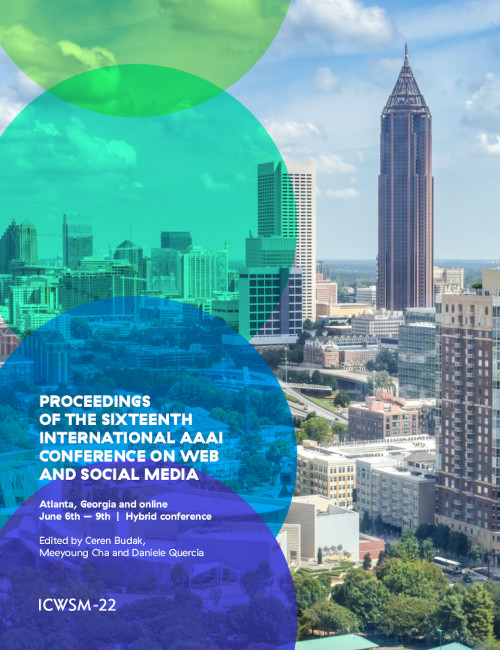COVID-19 Vaccine Misinformation Campaigns and Social Media Narratives
DOI:
https://doi.org/10.1609/icwsm.v16i1.19346Keywords:
Credibility of online content, Social network analysis; communities identification; expertise and authority discovery, Subjectivity in textual data; sentiment analysis; polarity/opinion identification and extraction, linguistic analyses of social media behavior, Qualitative and quantitative studies of social mediaAbstract
COVID-19 vaccine hesitancy has increased concerns about vaccine uptake required to overcome the pandemic and protect public health. A critical factor associated with anti-vaccine attitudes is the information shared on social media. In this work, we investigate misinformation communities and narratives that can contribute to COVID-19 vaccine hesitancy. During the pandemic, anti-science and political misinformation/conspiracies have been rampant on social media. Therefore, we investigate misinformation and conspiracy groups and their characteristic behaviours in Twitter data collected on COVID-19 vaccines. We identify if any suspicious coordinated efforts are present in promoting vaccine misinformation, and find two suspicious groups - one promoting a ‘Great Reset’ conspiracy which suggests that the pandemic is orchestrated by world leaders to take control of the economy, with vaccine related misinformation and strong anti-vaccine and anti-social messages such as no lock-downs; and another promoting the Bioweapon theory. Misinformation promoted is largely from the anti-vaccine and far-right communities in the 3-core of the retweet graph, with its tweets proportion of conspiracy and questionable sources to reliable sources being much higher. In comparison with the mainstream and health news, the right-leaning community is more influenced by the anti-vaccine and far-right communities, which is also reflected in the disparate vaccination rates in left and right U.S. states. The misinformation communities are also more vocal, either in vaccine or other discussions, relative to remaining communities, besides other behavioral differences. Furthermore, we investigate the COVID-19 vaccine narratives spread on social media. Besides misinformation narratives about vaccine safety, effectiveness and conspiracies, we find that rarer vaccine side-effects, reported less frequently in CDC VAERS reports, were more frequently discussed on social media, and in misinformation narratives, which also use other known tactics of science narratives distortion.Downloads
Published
2022-05-31
How to Cite
Sharma, K., Zhang, Y., & Liu, Y. (2022). COVID-19 Vaccine Misinformation Campaigns and Social Media Narratives. Proceedings of the International AAAI Conference on Web and Social Media, 16(1), 920-931. https://doi.org/10.1609/icwsm.v16i1.19346
Issue
Section
Full Papers

